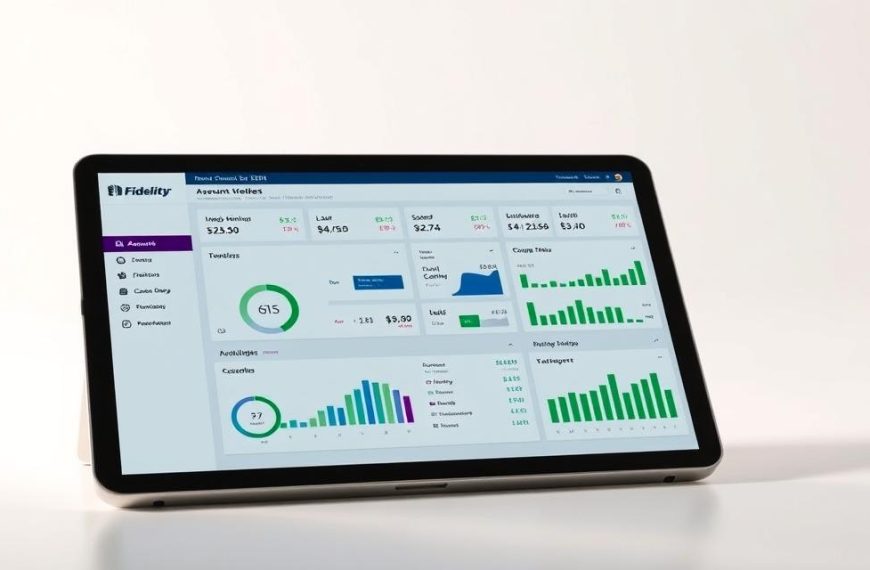In the realm of digital marketing, keywords play a pivotal role in driving search visibility and fostering business growth. Selecting the right keywords can transform your online presence, connecting your business with potential customers at the exact moment they’re searching for your products or services.
Understanding the importance of keywords and utilising the appropriate tool can significantly enhance your digital marketing efforts. By analysing search data and identifying valuable terms, businesses can make informed decisions about their content and advertising strategies.
Understanding the Power of Keywords in Digital Marketing
The power of keywords in digital marketing lies in their ability to link potential customers with the content they’re seeking online. Keyword research gives insight into how often people search for certain terms and how those searches have changed over time.
Here are key points that illustrate the significance of keywords:
– Keywords serve as the fundamental connection between what people are searching for online and the content you’re providing to fulfil that need.
– In digital marketing, keywords function as the bridge that connects potential customers to your business through search engines.
– Understanding keyword intent is crucial—different search terms indicate varying levels of research, comparison, or purchase readiness.
– Effective keyword strategy forms the backbone of both organic search engine optimisation and paid search advertising campaigns.
By selecting the right keywords, businesses can dramatically increase relevant traffic to their website, improving conversion rates and reducing marketing costs. Continuous keyword research and refinement are essential to adapt to changing search patterns and algorithm updates, informing broader marketing strategy.
What Makes a Keyword Effective for Your Business
To boost your business’s online visibility, it’s essential to understand the characteristics of effective keywords. Effective keywords are those that align closely with your business offerings and the specific products or services you provide.
Several factors contribute to a keyword’s effectiveness:
- Effective keywords must align precisely with your business offerings and the specific products or services you provide to ensure relevance to your target audience.
- Search volume is a critical factor—the most effective keywords balance popularity with competition, finding terms people actually search for but aren’t impossibly competitive.
- Keyword relevance to your website content is essential; search engines reward sites that genuinely address the search intent behind keywords.
- Commercial intent keywords (those indicating readiness to purchase) are particularly valuable for businesses focused on conversions rather than just traffic.
- The most effective keywords for your business will vary based on your industry, location, and whether you’re focusing on local or global search visibility.
- Long-tail keywords (longer, more specific phrases) often convert better despite lower search volumes because they capture users with more specific needs.
- Understanding your business objectives is crucial for keyword selection—brand awareness campaigns require different keywords than direct response marketing.
By focusing on these aspects, businesses can develop a keyword strategy that enhances their online presence and drives relevant traffic to their website.
Google Keyword Planner: The Essential Tool for Keyword Research
Google Keyword Planner is a vital tool for businesses aiming to enhance their online presence through effective keyword research. It provides valuable insights into search volume, competition, and potential keyword ideas.
How to Access and Set Up Google Keyword Planner
To start using Google Keyword Planner, you need a Google Ads account. Once you’ve set up your account, you can access the tool directly from the Google Ads dashboard. Setting up involves entering basic information about your business and configuring your campaign settings.
Key Features and Benefits of Google Keyword Planner
Google Keyword Planner offers several key features that make it an indispensable tool for marketers. These include:
- Historical search volume data to understand seasonal trends and changes in search behaviour.
- Keyword suggestions based on your website content or competitor URLs to expand your keyword universe.
- Bid estimation features to help set realistic budgets by providing approximate cost-per-click data for keywords in your industry.
- The ability to filter results by location, enabling geographically targeted keyword research.
- Competition metrics to identify potential opportunities where valuable keywords may have lower competition levels.
- Keyword grouping suggestions to assist in creating logically organised ad groups and content clusters.
By leveraging these features, businesses can optimise their keyword strategy and improve their online visibility.
Discovering New Keywords for Your Campaigns
Discovering new keywords is a vital step in creating an effective SEO strategy that resonates with your target audience.
To find new keywords, you can utilise tools like Keyword Tool, which leverages Google Suggest for keyword research. This tool extracts Google keyword suggestions and presents them in an easy-to-understand interface.
Using Search Terms Related to Your Products or Services
One effective method for discovering new keywords is to use search terms related to your products or services. By prepending and appending different letters and numbers to your search term, you can generate long-tail keyword suggestions that are more specific and less competitive.
Analysing Competitor Keywords for Strategic Advantage
Analysing your competitors’ keywords can provide valuable insights into their SEO strategy. This involves identifying your true search competitors, examining the keywords driving traffic to their websites, and using tools like SEMrush, Ahrefs, and SpyFu to gain insights into their most valuable keywords.
- Competitor keyword analysis begins with identifying your true search competitors, which may differ from your business competitors in the marketplace.
- Examining the keywords driving traffic to competitor websites can reveal gaps in your own keyword strategy and highlight valuable terms you may have overlooked.
- Tools like SEMrush, Ahrefs, and SpyFu can provide insights into competitors’ most valuable keywords for both organic and paid search campaigns.
- Analysing competitor content themes and topics can inspire new keyword clusters that align with your business offerings but weren’t previously on your radar.
- Look beyond direct competitors to adjacent industries that might share audience interests and search behaviours relevant to your business.
- Pay particular attention to competitors’ featured snippets and knowledge panel appearances, as these indicate highly effective keyword optimisation.
Keyword Research: The Foundation of Successful SEO
Keyword research is the backbone of any SEO effort, driving visibility and traffic. It involves identifying and selecting the most relevant keywords and phrases that your target audience uses to search for your content, products, or services.
Understanding Search Volume and Competition
When conducting keyword research, it’s essential to understand search volume and competition. Search volume refers to the number of times a keyword is searched, while competition refers to the number of websites targeting the same keyword.
Long-Tail Keywords: Finding Valuable Niche Opportunities
Long-tail keywords are longer, more specific phrases that have lower search volume but are also less competitive and more targeted. They typically consist of three or more words and are often used by visitors closer to a point of purchase or when using voice search.
Some key benefits of long-tail keywords include:
- Lower competition in search engine results
- Higher conversion rates due to their specificity
- Increased relevance to user search queries
Alternative Keyword Research Tools Worth Exploring
For those looking beyond the standard Google Keyword Planner, several alternative tools offer robust keyword research capabilities. These tools can provide a more comprehensive understanding of your target audience’s search behaviour.
The Keyword Tool is a free online keyword research instrument that leverages Google’s Autocomplete feature to generate hundreds of relevant long-tail keywords for any topic. It specialises in discovering long-tail keyword variations by systematically adding different letters and numbers to seed keywords.
WordStream’s Free Keyword Tool
WordStream’s Free Keyword Tool is another valuable resource for digital marketers. It offers insights into keyword suggestions based on actual user search behaviour and patterns, making it particularly useful for international SEO and multilingual campaigns.
For more information on various keyword research tools, you can visit IONOS Digital Guide for a comprehensive overview.
Keyword Tool and Other Alternatives
Other notable alternatives include Ahrefs Keywords Explorer, SEMrush Keyword Magic Tool, and Moz Keyword Explorer, each with unique strengths and data sources. Many of these tools offer features beyond basic keyword research, such as SERP analysis and competitive intelligence.
Free alternatives like Ubersuggest and AnswerThePublic provide valuable keyword suggestions for marketers with limited budgets or those just beginning their keyword research journey.
Optimising Your Keyword Strategy for PPC Campaigns
A thorough understanding of keyword strategy optimisation can significantly enhance the performance of your PPC campaigns. To achieve this, you need to focus on two critical aspects: estimating costs and setting budgets, and organising keywords into effective ad groups.
Estimating Costs and Setting Budgets
Estimating costs and setting budgets is a crucial step in managing your PPC campaigns effectively. Google Keyword Planner provides suggested bid estimates for each keyword, helping you determine your advertising budget. This information enables you to allocate your budget efficiently across different keywords and ad groups.
Organising Keywords into Effective Ad Groups
Organising keywords into effective ad groups is vital for improving the relevance of your ads and reducing costs. Effective ad groups contain tightly themed keywords that share similar intent, allowing for highly relevant ad copy that improves quality scores. The ideal structure follows the “one keyword, one ad, one landing page” principle for maximum relevance. Single keyword ad groups (SKAGs) can dramatically improve performance for high-value terms by enabling extremely targeted messaging and landing page experiences.
Some key benefits of well-organised ad groups include:
- Logical keyword organisation facilitates easier performance analysis and budget allocation decisions across different product lines or service categories.
- Ad group structure should reflect the customer journey, with separate groups targeting awareness, consideration, and decision stages with appropriate keywords and messaging.
- Regular ad group refinement based on search term reports helps identify new keyword opportunities and negative keyword candidates to improve campaign efficiency.
Implementing Keywords in Your Website Content
To maximise your website’s search engine ranking, it’s essential to strategically place keywords within your content. Effective keyword implementation requires placement in critical on-page elements, including title tags, headings, URL structures, and meta descriptions.
Modern SEO content should focus on topical relevance and comprehensive coverage rather than keyword density. Each page on your website should target a primary keyword and several semantically related terms that collectively address a specific search intent.
Content should read naturally for human visitors while incorporating keywords in a way that clarifies rather than confuses the topic being discussed. Regular content audits should evaluate keyword performance and identify opportunities to refresh or consolidate pages based on changing search patterns.
Tracking and Measuring Keyword Performance
To effectively gauge the success of your digital marketing efforts, tracking keyword performance is crucial. Comprehensive keyword performance tracking requires monitoring multiple metrics, including rankings, organic traffic, click-through rates, conversion rates, and revenue attribution.
Data from Search Console provides valuable insights into which keywords are driving impressions and clicks to your website, often revealing opportunities not identified in initial keyword research. Performance measurement should account for keyword difficulty and search volume to set realistic expectations.
Tracking keyword performance over time reveals seasonal patterns and trend shifts that should inform content updates and campaign adjustments. Data analysis helps understand how different keywords contribute to the customer journey, from initial awareness to final conversion.
Regular competitive analysis of keyword rankings identifies threats and opportunities as competitors adjust their content and SEO strategies. By leveraging data on search volume and competition, you can refine your keyword strategy for improved performance.
Common Keyword Research Mistakes to Avoid
The success of a digital marketing campaign heavily relies on thorough keyword research, but several common mistakes can derail this process.
Avoiding common pitfalls is crucial for effective research. Here are some mistakes to steer clear of:
- Focusing exclusively on high-volume keywords without considering competition levels or conversion potential.
- Neglecting search intent behind keywords, resulting in misaligned content.
- Ignoring long-tail keywords in favour of short, competitive terms.
- Failing to research competitors’ keyword strategies.
- Conducting keyword research as a one-time activity.
- Creating content based solely on keyword volume.
- Overlooking negative keywords in PPC campaigns.
By being aware of these common mistakes, businesses can refine their keyword research process, improving their online visibility and search engine rankings.
Conclusion: Leveraging the Right Keywords for Business Growth
By understanding and implementing the right keywords, businesses can significantly enhance their online presence and drive growth. Effective keyword strategy requires balancing search volume, competition, relevance, and commercial intent to identify the keywords that will drive qualified traffic and conversions. The most successful businesses view keyword research as an ongoing process that informs all aspects of digital marketing, from content creation to paid advertising. For a deeper dive into the world of keyword research, you can explore resources such as this presentation on keyword research and business. As search technology evolves, keyword strategies must adapt to focus more on topics and user intent. Ultimately, keyword research should connect business offerings with the language customers naturally use.























